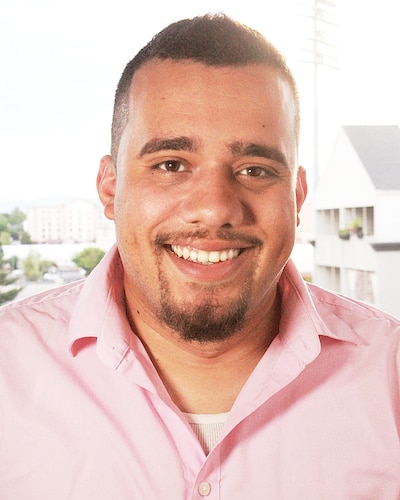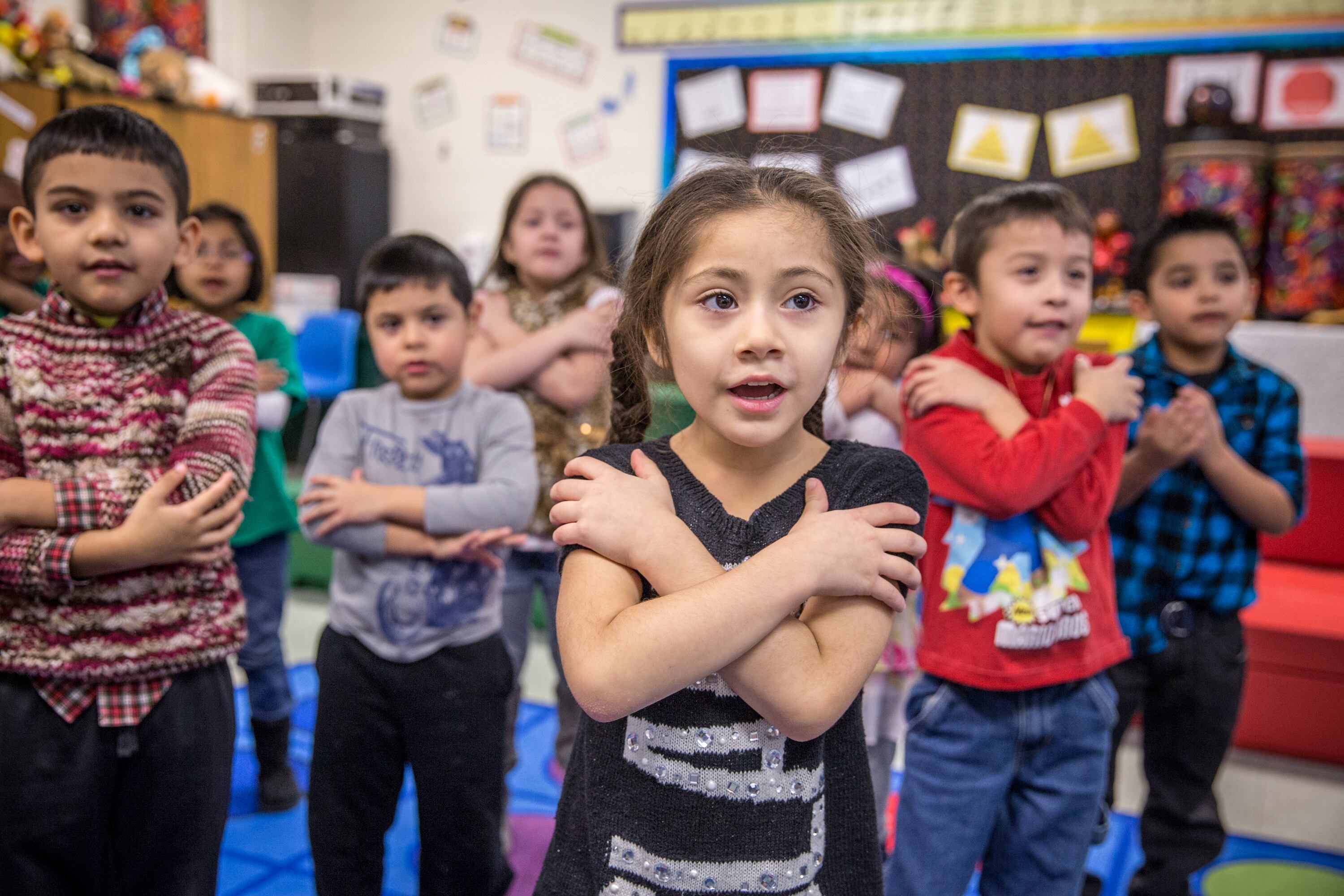Croatian rock, Brazilian jazz, and hip-hop.
Those are a few of the musical genres Donavan Fountain introduced his kindergarten students to as part of a week-long music appreciation unit he created since there was no music class in the weekly schedule.
“I love music so much, and I wanted to share that with my students,” he said.

Fountain, a graduate of Denver School of the Arts, previously taught at Global Village Academy and this year teaches at Lotus School for Excellence, both charter schools in Aurora. He was among a dozen teachers selected last year for a Colorado Teaching Policy Fellowship through the national nonprofit Teach Plus. The program aims to involve teachers in education policy discussions and give them the tools to lead change.
Fountain talked to Chalkbeat about his contribution to Colorado’s new school discipline law, the impact of COVID rules on kindergarten families, and why he talked to a student’s parents about their divorce.
This interview has been lightly edited for length and clarity.
Was there a moment when you decided to become a teacher?
When I was in high school, I had one of the greatest educators I’ve ever encountered as my history teacher — Mark Hughes. One day he was lecturing about World War II, specifically the D-Day Invasion, and he pointed to a poster on his wall. The poster was a photograph of Gen. Dwight Eisenhower briefing a group of paratroopers before the Normandy Invasion. When Mr. Hughes talked about the moment in which the photo was taken and the weight of the scenario he began to cry purely out of a passion for the content he was teaching, and it moved me deeply. I decided then that I wanted to become an educator.
How did your own school experience influence your approach to teaching?
I went to Denver School of the Arts for theater in middle school and high school. It influenced me to push for kids to use their creativity and imagination as much as possible. Kindergarteners are naturally curious, imaginative, and creative — I’m just dedicated to bringing that out of them!
Tell us about a favorite lesson to teach.
At my last school, we, unfortunately, didn’t have a “music specials” class for our elementary building. So, for a week, I taught a music appreciation class to my kindergarteners. We listened to so many different types of music, and they journaled about what they liked and what it reminded them of. On the first day, we listened to world music, including a Croatian Prog-Rock group called September and the Brazilian jazz artist Waldir Calmon. On day two, we studied hip-hop. We looked at several elements of hip-hop, including breakdancing, beatboxing, DJing, and rapping.
As a Teach Plus policy fellow, what project did you undertake? Why?
When the fellowship began in June 2021, we got grouped together based on mutual interests. Our working group was tasked with addressing the school-to-prison pipeline and how/if it affects students in the state. I’ve been fascinated by this theory not only as an educator but as a person of color, so when the option presented itself, I jumped at it.
I’m proud to say that our efforts resulted in the drafting of House Bill 22-1376, also known as Supportive Learning Environments for K-12 Students. The bill was signed into law this summer, and I contributed language that ended up in the bill. I was very happy to have that opportunity. It gave me an inside look at the direction I want my career to head.
What is something happening in the community that impacts your classroom?
A lot of parents have been a bit frustrated that they can’t be involved as much within the school building due to COVID protocols. This is especially unnerving for parents of kindergarteners, as that’s the cohort of students that needs the most support, especially in the first month or two. For me, the big concern is students feeling anxious or upset without their parents. It’s appropriate developmentally, but considering a parent in a pre-COVID world would be able to walk their student all the way to class, the protocols now make things a bit tougher.
Tell us about a memorable time — good or bad — when contact with a student’s family changed your perspective or approach.
A couple of years ago, I had a student whose parents were in the middle of a divorce that was less than amicable. The fighting and poor communication between the parents spilled into their son’s life. He was always so upset and couldn’t calm himself down. Seeing this had an impact on me as I’m a person whose parents divorced, but my parents knew to keep my sister and me out of the parts that had to do with them.
Eventually, my co-teacher and I called a conference with the parents and had to be stern about positive and appropriate communication and how [the divorce] was affecting their student. I learned that although I care for the families of our students, my primary concern is the student.
What are you reading for enjoyment?
I’m kind of a nerd when it comes to education policy, so when I have some free time, I love to read books about education policy as well as studies surrounding education. But for extra fun, I’ve been listening to Tom Segura’s new book, “I’d Like to Play Alone, Please.”
Ann Schimke is a senior reporter at Chalkbeat, covering early childhood issues and early literacy. Contact Ann at aschimke@chalkbeat.org.







